Germany election: Merkel challenged by anti-migrant AfD
- Published
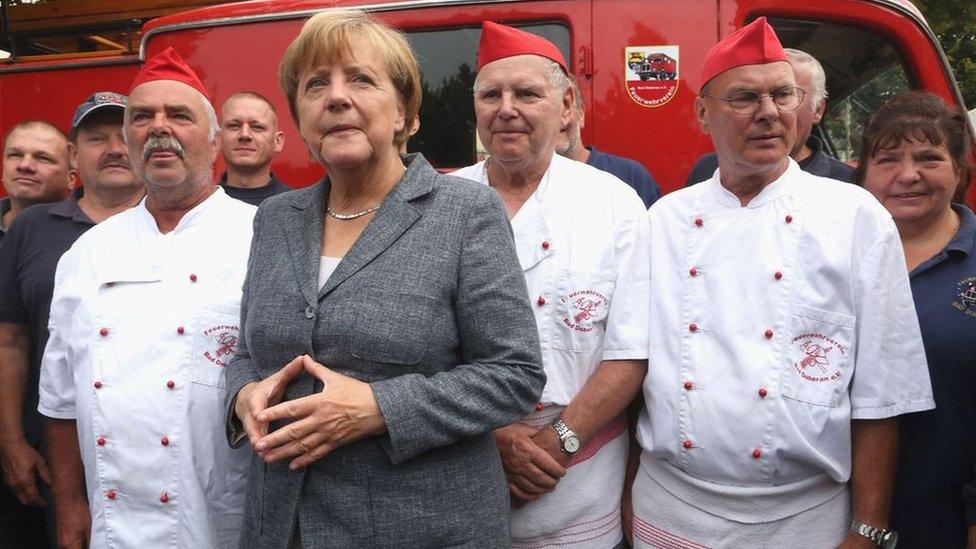
Ms Merkel posed with firefighters while campaigning in Mecklenburg-Western Pomerania
Voters in a north-east German state are going to the polls in a vote seen as a test of Chancellor Angela Merkel's policies towards migrants and refugees.
The anti-migrant and anti-Islam Alternative fuer Deutschland (AfD) could get more votes than Mrs Merkel's CDU in Mecklenburg-West Pomerania.
This would weaken Ms Merkel ahead of national elections next year.
However, all Germany's other parties have ruled out forming a governing coalition with the AfD.
So the party stands no chance of forming a government in the state.
'Rapefugee' message in Rostock as AfD challenges Merkel
Is Merkel really on the ropes?
Profile: AfD leader Frauke Petry
But it has seen huge gains in various regional elections over the last year.
Mecklenburg-West Pomerania, in the former East Germany, is where the chancellor's own constituency is located.
Polls show her Christian Democrats (CDU) polling behind the AfD, and Ms Merkel told voters in the state: "It's going to be a tight race - every vote counts."
'Asylum chaos'
One voting intentions poll showed the centre-left Social Democrats first with 28%, while the AfD edged ahead of the CDU with 23% to 20%.
The AfD is believed to be attracting voters away from the centre-right CDU.
Party candidate Leif-Erik Holm said: "We hope to become the strongest party in Mecklenburg-West Pomerania."
Germany is taking in large numbers of refugees and migrants - 1.1 million last year - and anti-immigrant feeling has increased.
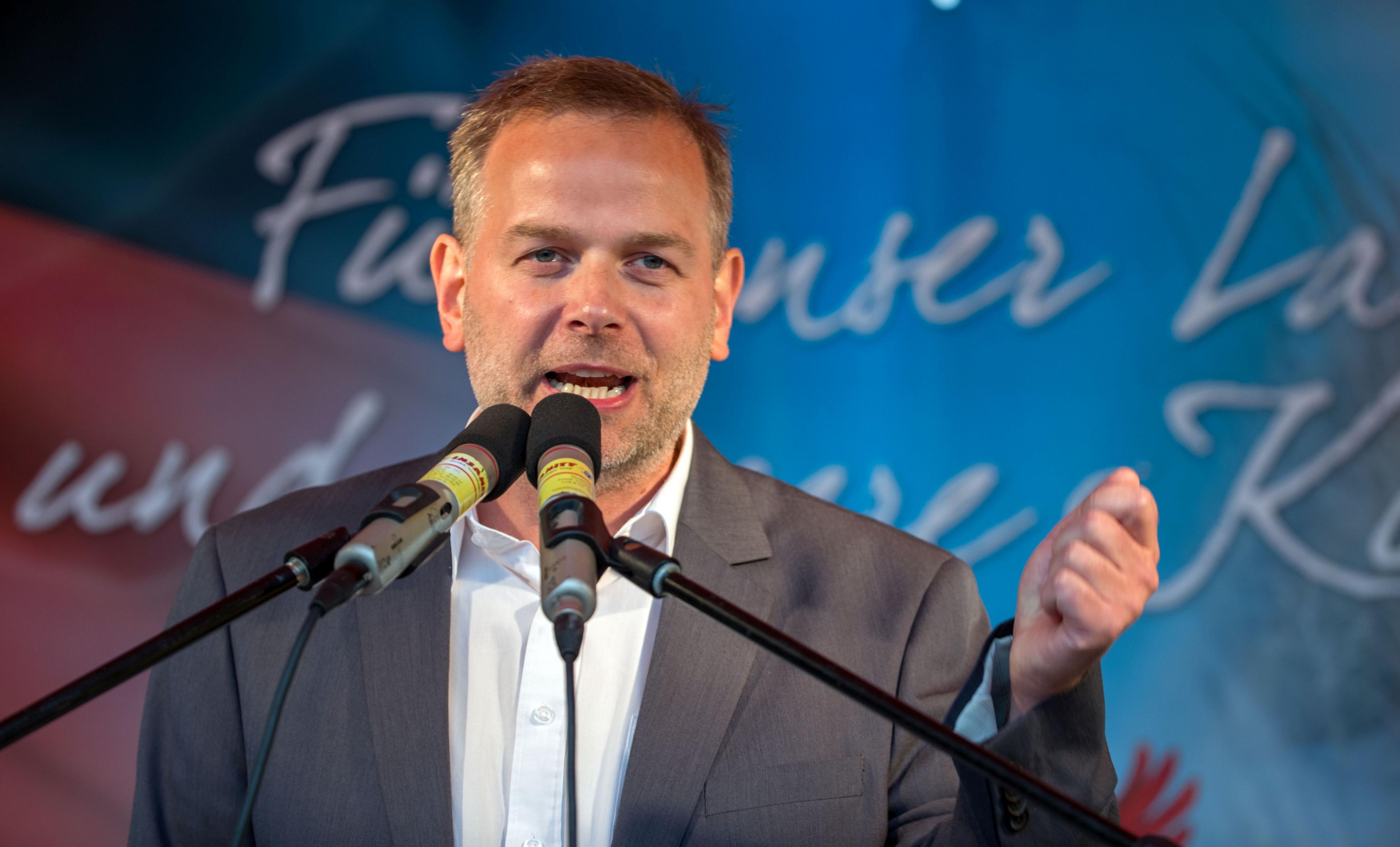
The AfD's most prominent candidate in Mecklenburg-Western Pomerania is Leif-Erik Holm, a former radio presenter
The AfD, initially an anti-euro party, has become the outlet of choice for voters frustrated by the chancellor's policy of welcoming migrants.
Its slogan nationwide is: "Let's end asylum chaos."
But on Saturday Ms Merkel told Bild newspaper: "We did not reduce benefits for anyone in Germany as a result of the aid for refugees. In fact, we actually saw social improvements in some areas.
"We took nothing away from people here. We are still achieving our big goal of maintaining and improving the quality of life in Germany."
Only 2% of migrants arriving in Germany have gone to live in Mecklenburg-West Pomerania.

More on AfD
Founded in 2013 by Bernd Lucke, Alexander Gauland and Konrad Adam to oppose German-backed bailouts for poorer southern European countries
Mr Lucke, seen as a moderate, wanted Germany out of the euro but his colleagues were unhappy that he wanted to focus exclusively on euro-related issues
He quit the party in early July 2015, arguing it was becoming increasingly xenophobic
Right-winger Frauke Petry replaced him as party leader
It became the first anti-euro party to win seats in a German regional parliament, receiving almost 10% of the vote in the eastern German state of Saxony in 2014, and went on to win seats in other states' parliaments
The party had seven MEPs elected in the 2014 European elections (including Mr Lucke), but only two remain party members
The party adopted an anti-Islam policy in May 2016
In one southern state the party split after a representative suggested the Holocaust was given too much attention

- Published3 September 2016
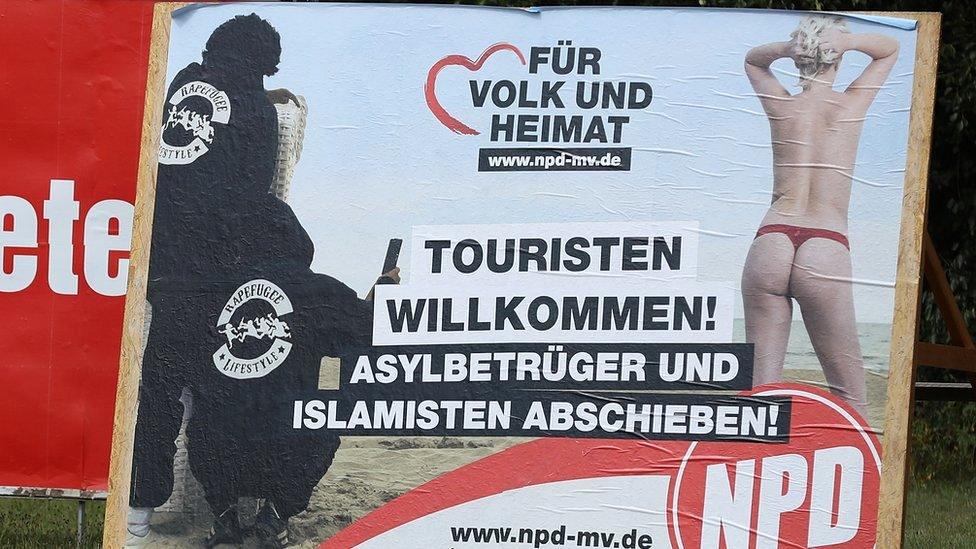
- Published7 August 2016
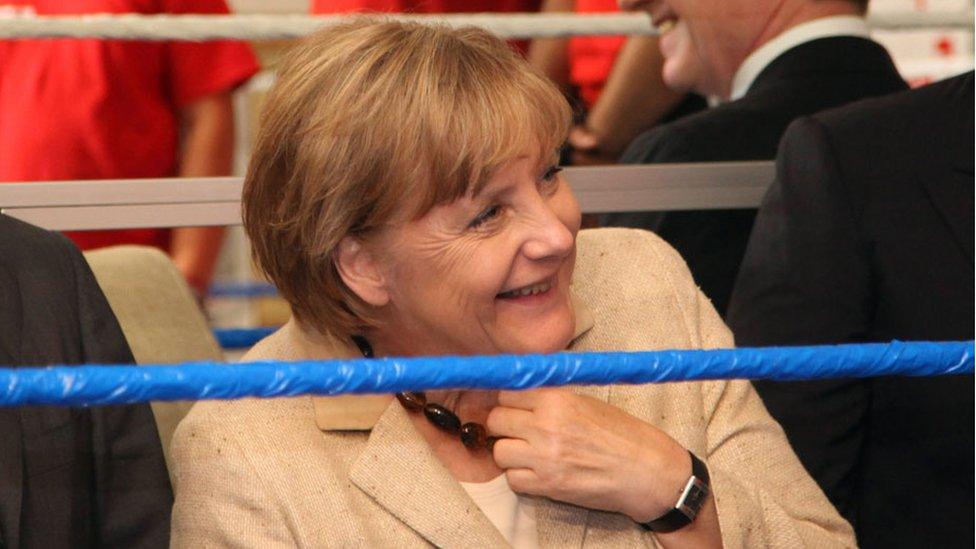
- Published13 November 2019
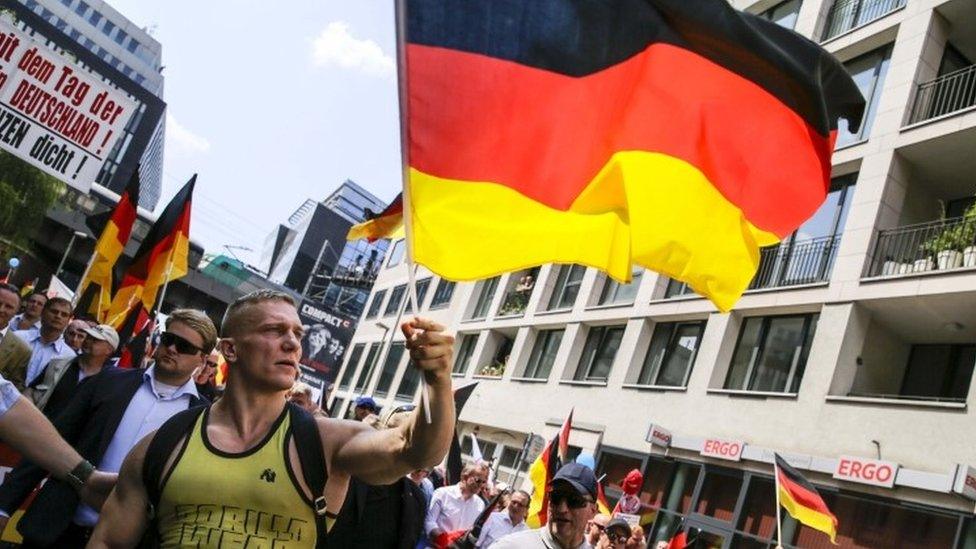
- Published6 July 2016
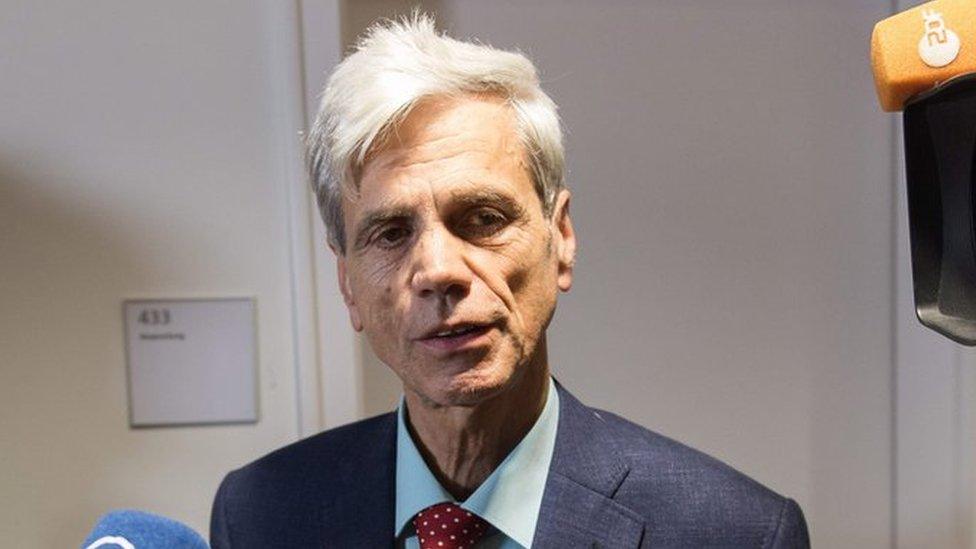
- Published10 March 2016
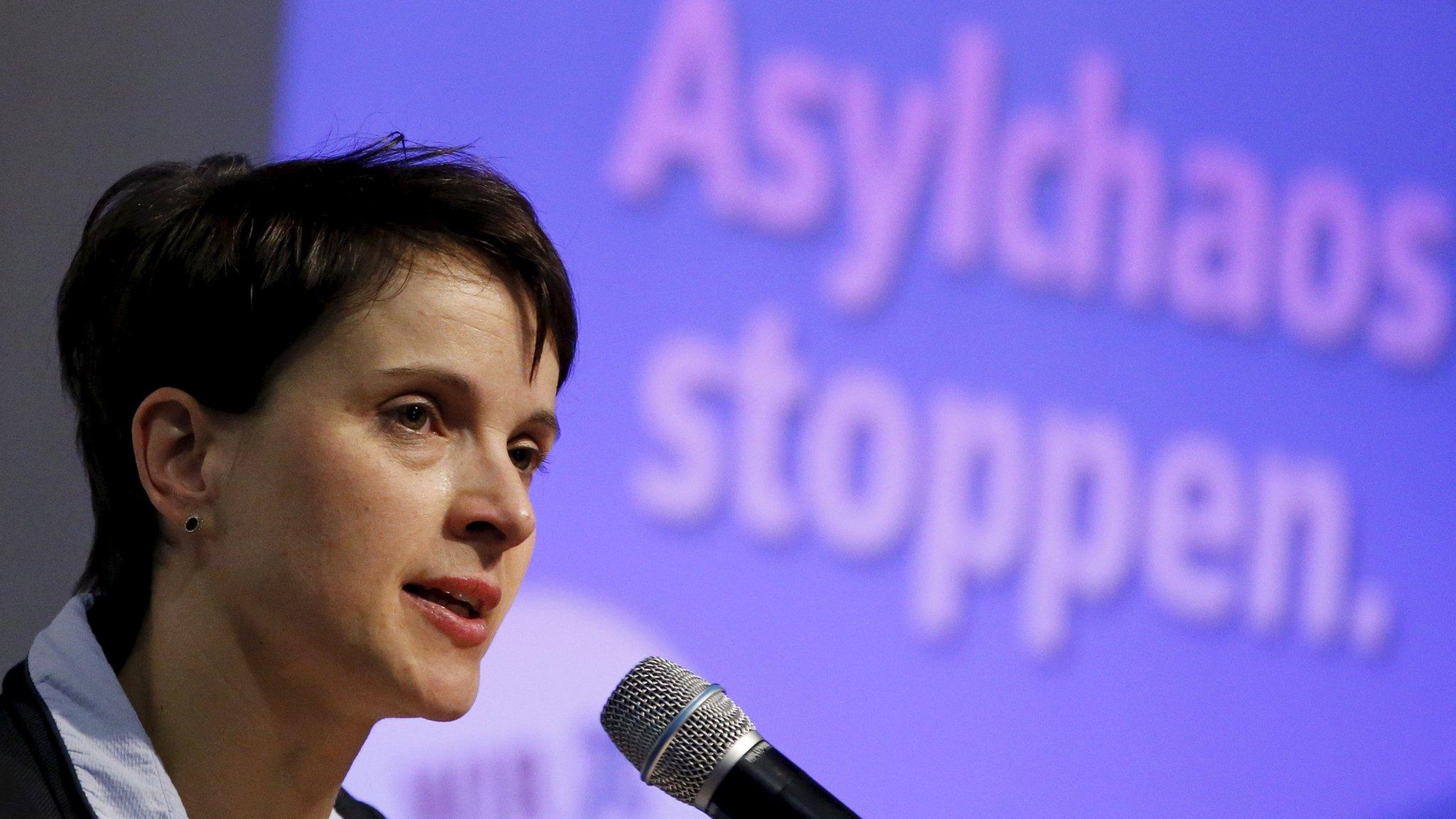
- Published14 March 2016
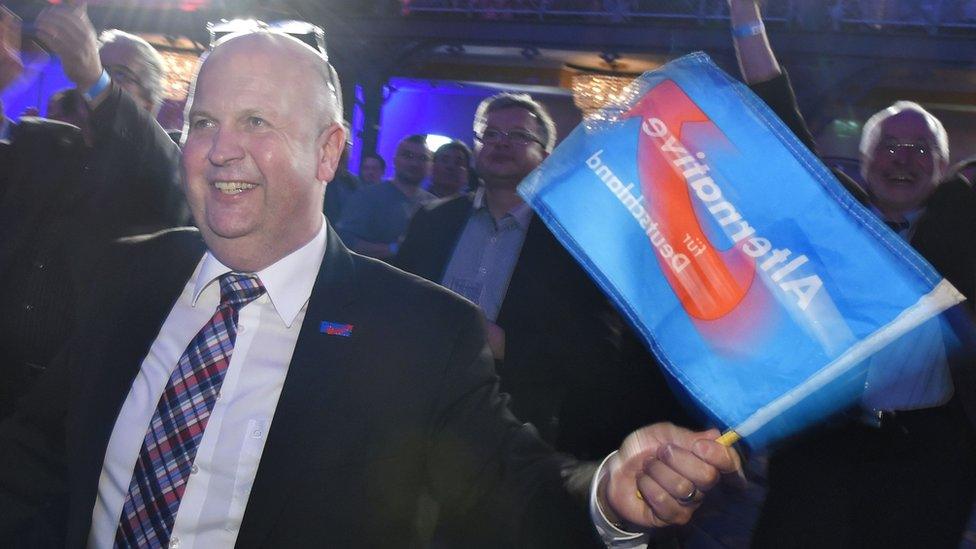
- Published28 April 2016